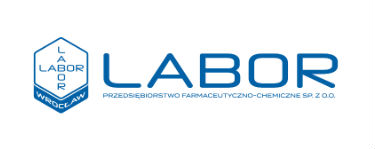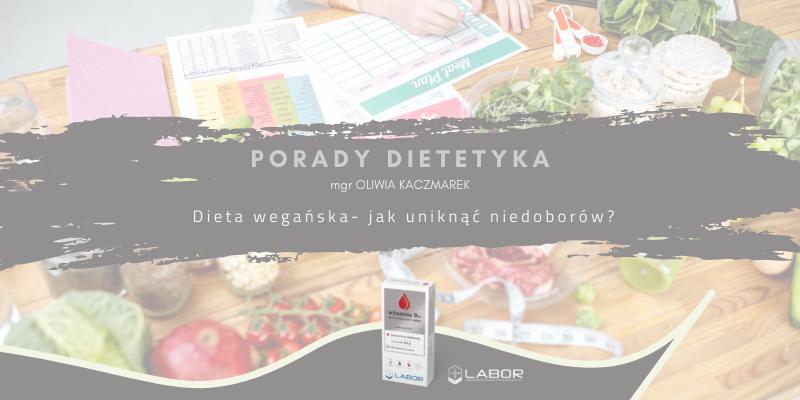Over the years, diets based on plant-based products are gaining in popularity. More and more people are switching to a vegetarian diet for a variety of reasons: ethical, health, environmental, religious or philosophical. There are many varieties of vegetarianism, one of which is veganism.
What is veganism?
Veganism is based on five food groups: legumes, vegetables, whole grains, fruits, seeds and nuts. Supporters of such a diet consume only products of plant origin, and all animal products such as milk, dairy products, cheese, eggs, honey or some food additives such as cochineal (E120) are prohibited. Vegans reject all forms of exploitation of animals, therefore they do not use objects and things, the production of which may have contributed to the suffering of animals (leather clothing, cosmetics tested on animals).
Is veganism healthy?
A properly balanced plant diet that provides all the necessary nutrients will certainly have a positive effect on health and reduce the risk of many diseases (type II diabetes, obesity, cardiovascular disease, cancer). Importantly, according to the position of the American Dietetic Association (ADA), a well-composed diet can be used at any stage of life (by children, the elderly, pregnant and lactating women, and competitive athletes). However, a vegan diet can also be an unhealthy diet, with many processed foods, high in sugar, flavor enhancers, and not meeting nutrient requirements (e.g. protein, calcium, iron). Only the right selection of products for the preparation of meals will avoid shortages.
Pros and cons of a vegan diet
Advantages:
-Vegan diet has more nutritional value but less energy.
– It is low in saturated fat and cholesterol.
– Reduces the risk of many diseases (atherosclerosis, hypertension, obesity, type II diabetes, cancer).
– Contains large amounts of vitamin C, antioxidants, fiber.
– Reduces the risks of: nitrosamines, antibiotics and veterinary drugs, salmonella.
Disadvantages:
-Lower bioavailability of minerals (calcium, iron, iodine, zinc)
– Possible deficiencies of vitamin D, B12 and omega-3 (in the absence of supplementation).
– Low energy supply (problematic for athletes).
-Increased risk from residues of plant protection products and fertilizers.
Deficient ingredients in a plant diet
Vitamin B12
In a vegan diet, the main deficiency ingredient is cobalamin (vitamin B12). Its natural source is only products of animal origin (eggs, meat, offal, milk, cheese, fish and crustaceans). In trace amounts, cobalamin is found in fortified soybean drinks, rice drinks, food yeast, algae, and some breakfast cereals. Vitamin B12 has many important functions in the body: it greatly affects the circulatory and nervous systems, prevents anemia, is involved in the production of red blood cells, and its deficiency can lead to neurological disorders and megaloblastic anemia. Therefore, to ensure an adequate supply of this vitamin, it should be supplemented (Vitamin B12, methylcobalamin LABOR).
Iron
Another problematic ingredient in a vegan diet is iron. The most digestible form is heme iron, which is found only in meat, especially red meat. There is non-heme iron in plant products, and in this form it is unfortunately less digestible. Therefore, to increase the bioavailability of this element, it should be consumed together with products containing vitamin C, organic acids or fructose (e.g. quinoa + strawberries + lemon juice or oatmeal + orange + walnuts). The absorption of non-heme iron will also be facilitated by processed soy protein in the form of: miso, tofu or tempeh. Other foods that can provide iron in a vegan diet include legumes, nuts, seeds, groats, dried fruit, and green vegetables. Phytates and polyphenols present in tea, cocoa and herbal teas are iron inhibitors, i.e. compounds that limit the absorption of this element. Soaking cereal seeds and acidifying the bread can reduce their levels. The iron content in well-balanced plant-based diets does not differ significantly from the iron content in meat diets. The only difference is in the quality of iron, which in plant diets is in a non-heme form, and therefore in a less digestible form.
Protein
Many people associate veganism with protein deficiency, believing that the only source of protein in the diet is meat, eggs, dairy products and its products. However, protein can be obtained from many products, including products of plant origin. However, plant protein is deficient, meaning it does not contain enough essential amino acids that are used to build all of the body’s tissues and structures. By choosing and combining the right products, you can supplement the missing amino acids in your diet. It is worth bearing in mind the variety of products, so meals should be composed in such a way that they contain cereal products and legumes (e.g. lentil stew with groats, bread with bean paste). Cereals are often poor in lysine, which is an essential amino acid, and its insufficient amount in cereal products can be supplemented with lysine from legumes. The basic protein products in a vegan diet that should be present in every main meal are legumes (chickpeas, lentils, soybeans, peas, beans, green peas, broad beans) and their products (tofu, tempeh, soy yogurt, soy chops). Examples of good grain products that will allow complementarity of proteins and help to supplement the protein requirements are: buckwheat, quinoa, amaranth, wheat and oats. You can also use plant-based drinks and yoghurts, which are additionally enriched with calcium.
Calcium and vitamin D.
Vegans have an increased risk of developing osteoporosis. It is associated with low calcium intake. In the traditional diet, the main sources of this macronutrient are dairy products and its products, so if you exclude animal products from the menu, you should ensure the supply of calcium from other products. Sources of calcium in a plant diet can be: highly mineralized water containing a minimum of 150 mg / l Ca, kale and other cruciferous vegetables, figs, nuts, poppy seeds, sesame, tahini, chia seeds, legumes and calcium fortified substitute products (tofu, soy drink). However, you should be aware that the absorption of calcium is influenced by the level of the body’s saturation with vitamin D, which should be supplemented by vegans, especially in the autumn and winter period (Calcineff D3 K2).
Omega-3
Compared to the traditional diet, a vegan diet is characterized by a low consumption of saturated fats and a higher amount of polyunsaturated fats. Nevertheless, the supply of omega-3 fatty acids in the diet, i.e. docosahexaenoic acid (DHA) and eicosapentaenoic acid (EPA), is insufficient. Vegetable sources of these acids can be: linseed oil, linseed, chia seeds, hemp seeds, linseed oil, walnuts, linseeds and rapeseed oil. It is good to consider omega-3 supplementation with sea algae-based preparations to help compensate for the deficiencies.
Bibliography:
Craig W.J., Mangels A.R .: Position of the American Dietetic Association: vegetarian diets. J Am Diet Assoc .; 2009. Jul; 109 (7): 1266-82
AUTHOR: Oliwia Kaczmarek, MA




